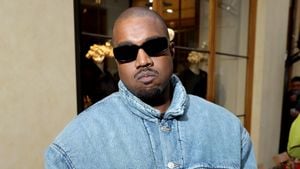Prince Harry's legal battle over his US visa records is set to continue as new developments emerge, raising significant questions about his past admissions of drug use. The case reopens Wednesday, five months after being seemingly resolved.
The Duke of Sussex, who acknowledged past drug use—including marijuana, cocaine, and psychedelic mushrooms—in his 2023 memoir Spare, now faces scrutiny from the conservative Heritage Foundation. This think tank launched the lawsuit against the Department of Homeland Security (DHS) after their request for Prince Harry's visa application documents was denied.
The initial ruling came down in September 2024, when Judge Carl Nichols determined Harry's immigration records would remain private due to his legitimate privacy interests. "The public does not have a strong interest in disclosure of the duke's immigration records," Judge Nichols reiterated at the time. Yet, the recent shift—prompted, perhaps, by the Duke’s disclosures about his drug use—has reopened the door for exploration.
On Wednesday, the case is poised to be reassessed. Lawyers from all relevant parties will gather at the federal court located in Washington D.C. for what has been described as a “motion for relief from judgment” hearing. The reopening coincides with discussions surrounding the political climate, particularly with former president Donald Trump weighing in on the issue.
Trump has vocally criticized Harry, alleging preferential treatment from the Biden administration since his move to the US with Meghan Markle. "I wouldn’t protect him. He betrayed the Queen. That’s unforgivable," Trump stated, underscoring the transformation of this legal battle from mere immigration issues to national discourse involving royalty, politics, and public sentiment.
The Heritage Foundation's initial endeavor was based on the idea of public interest. They argue Harry’s admission of recreational drug use potentially questions the legitimacy of his visa application, which directly interrogates US immigration laws. These forms typically require detailed disclosures about drug history, and admitting to past drug use could render applicants inadmissible.
Harry's candid revelations from Spare—particularly his reflection, "It wasn't much fun, and it didn't make me particularly happy, as it seemed to make everyone around me, but it did make me feel different, and that's the main goal. Feel. Different"—led to the Heritage Foundation's assertion. They maintain Harry needs to be held accountable for potentially misleading information provided during his visa application process.
Each moment advances the dialogue surrounding Harry’s legal troubles, particularly as the publications surrounding these events impact public perception. The resulting legal scrutiny will come to a head again by March 6, 2025, when Judge Nichols expects to see documentation presented, including selected redacted materials from the DHS.
Despite this lawsuit's complex legal framework, Donald Trump has made it clear he views Harry’s situation through the lens of loyalty and betrayal. "We’ll have to see if they know something about the drugs, and if he lied they’ll have to take appropriate action," he asserted, indicating potential consequences should Prince Harry be found misleading during the visa application process.
Trump's commentary has incited discussions about the integrity of immigration laws, what constitutes fair treatment for foreign nationals, and the obligations of public figures—especially those from aristocratic backgrounds—under such laws.
The outcome of this legal battle holds considerable ramifications, not only for Prince Harry but also for similar cases moving forward. This intersection of personal accountability and public interest raises fundamental questions about transparency and privilege within immigration protocols.
While the saga continues to evolve, Prince Harry’s status and the broader discourse surrounding these events likely remain center stage. Immediate reactions and public sentiment will be closely monitored as developments unfurl, especially with the recent political involvement adding layers of complexity.
This case exemplifies the intersection of celebrity culture, political interplay, and legal interpretation within the framework of immigration. Harry's struggle for privacy versus the calls for accountability encapsulates the tensions inherent in contemporary discourse.
With the renewal of this legal challenge, the narrative around Prince Harry is more alive than ever, weaving together personal admission, public speculation, and political ramifications.



